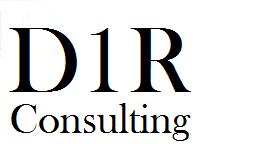Customer
- Details
- Published: Saturday, 21 January 2012 18:17
The customer is central to any business. A business would be nothing without its customers. Therefore, it is important to understand exactly who your customer is. We always want to know what they are thinking so that we can match the products and services we provide to what they want. This is a continuous endeavor, we always want to make sure we understand how our customer is changing, and to change with them.
The customer is especially important in a competitive industry such as retail alcohol. The person walking in the door has at least 10 other choices in a 15 mile radius. We have to understand not only why they came in our door, but how to get them to come back again and again. The key is not in how you garner this information, but rather that it is done. The information collected will allow you, as the business owner, to make sure that the items you are offering are exactly what they need. Otherwise, why would they ever buy anything, or come back? As an example, there is always a big push for sparkling wine around the Christmas/New Year’s season. Is this really what customers want during this time period? Or is there something else they are more interested in? I know many alcohol customers who are more interested in sparkling wine during other seasons. Your customers may be different, but the main point is to challenge conventional wisdom and understand that what you are doing is matched directly to what your customers want. If you do not focus on the customer, your competitors will.
We always think we know the customer, but do we? Or, are we clinging to outdated ideas that have always been true? This represents the dangerous complacency that can jeopardize a business. It is imperative that you keep up with your customer, changing to meet his/her needs. Another question is whether you are selling goods based on somebody else’s customers. Although there may be generalizations for some customers, that is not true in all cases. Each retail location is different and attracts different types of customers based on the surrounding location. For example, your location may be near a large office park. It may make more sense to focus on the habits of this customer during the week rather than the typical customer. The main point is to know your customer and then make sure to tailor your products and services to that customer.
Understanding your customer is an example of the “pull” model that successful businesses employ. This is a system in which the customer determines your output (bottles of alcohol) by “pulling” on your supply chain. This way, they get exactly what they want. Less successful businesses have a “push” model, in which the business determines what the customer may want and “push” it onto them. This can result in lower sales, more time spent persuading the customer, and excess inventory. These all represent decreased profitability and decreased customer satisfaction. D1R Consulting stands beside you to help you understand your customer and continue to build a successful business.

